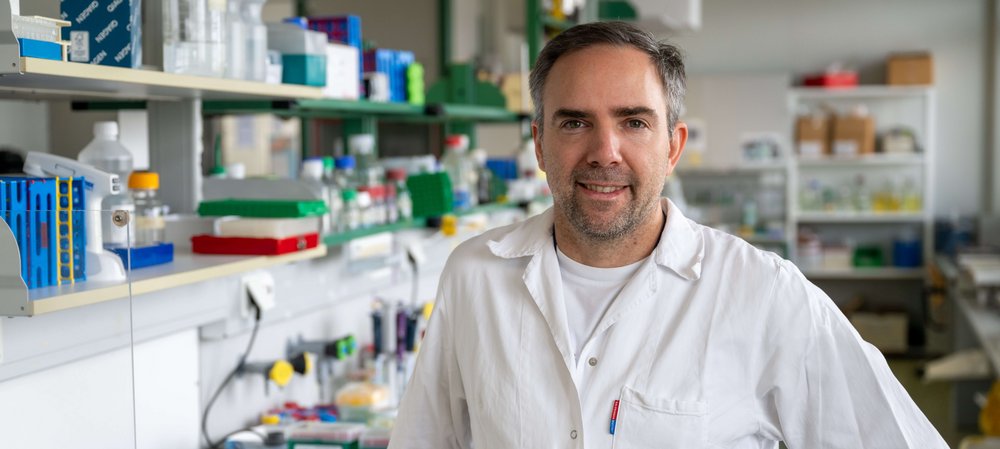- Home /
- University /
- Infoservice /
- Press Releases /
- Presseinformationen 2024 /
- Sebastian Glatt appointed Professor of Systems Genetics
Have you settled back into life in Vienna by now?
We are currently looking for a suitable place and for a primary school for my daughter, who is due to start school in September 2025.
What motivated your decision to accept the position at Vetmeduni?
Vetmeduni has an excellent international reputation, and Vienna has a very strong RNA and structural biology community. During my talks with the university, I was able to confirm my positive first impression of the university and of campus life, which made my decision after receiving the offer an easy one.
What are you looking forward to now following your arrival at Vetmeduni?
Getting to know as many of my new colleagues as possible and making interesting new contacts.
What will you miss about Kraków and the MCB?
The ambition and drive to catch up with history. Young people in Poland have the feeling that each single one of them can move the whole country forward.
What is especially important to you in teaching?
Our knowledge of genetics and molecular biology has grown enormously since I was a student, and we are just beginning to unravel and understand the most basic principles of the most complex cellular mechanisms. In the future, this molecular knowledge will have a much greater impact on diagnostic and therapeutic approaches in clinical practice, and we need to prepare students for these changes. Above all, I would like to pass on my passion and enthusiasm for research and teaching to the next generations.
Word Rap
The most difficult technical term that justifiably needs an abbreviation?
WARP – Durchlichtelektronenmikroskopiebilddatenentzerrungswerkzeug
What do you do when you get stuck in your research?
I talk to as many people as possible about it, because often thoughts only materialise when you put them into words.
Your ultimate motivational song?
“Best of You” by the Foo Fighters.
Team Coffee or Team Tea?
Team Coffee in the morning, Team Tea during the day.
Things that I always have in my work/lab cupboard…
Cap and winter coat for the cold room, 3D goggles, headphones.
